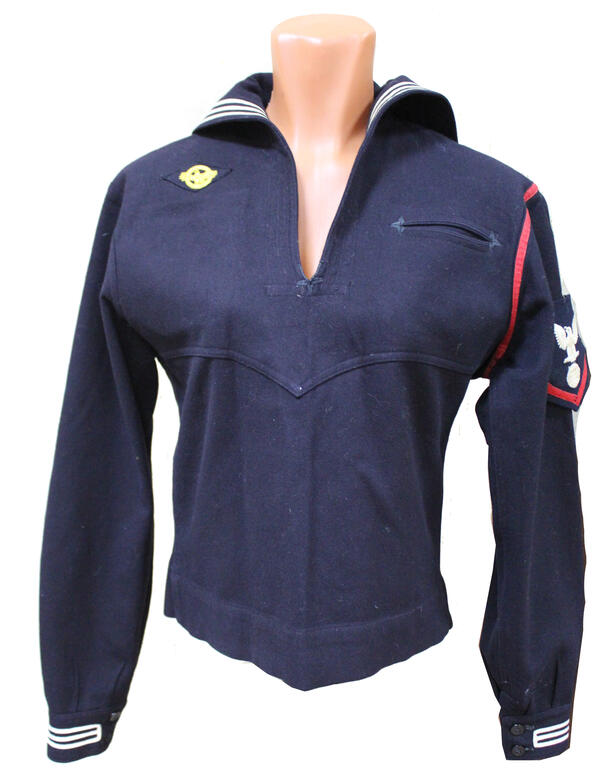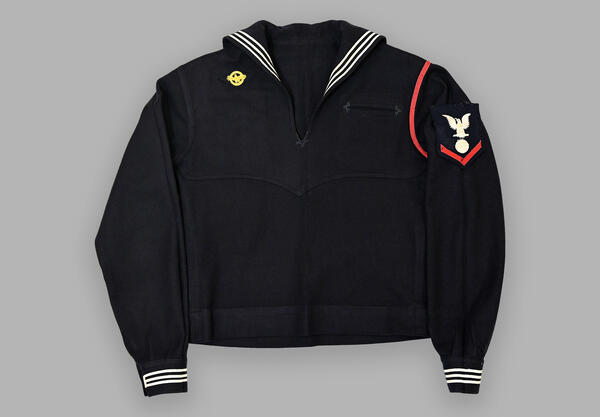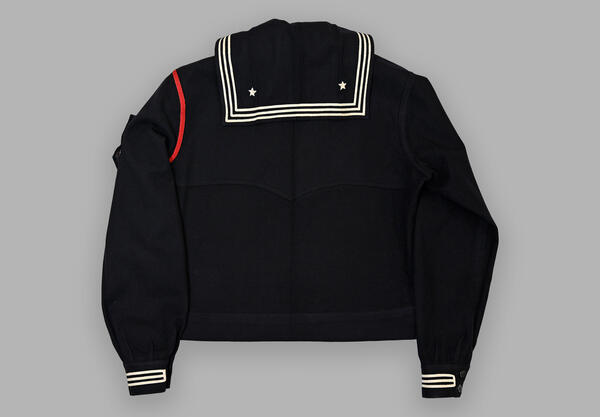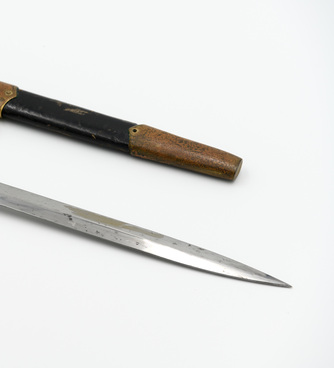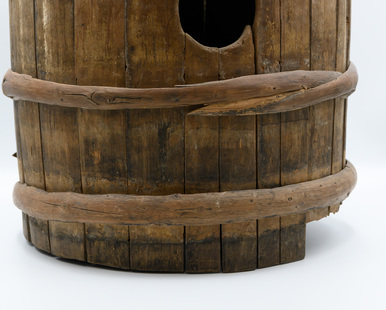The Polyarny Museum of History and Local Lore presents an American service uniform for sailors and junior petty officers. It was made of thick woolen fabric in the USA.
An unforeseen outcome of the Northern Fleet’s pre-war preparation activities was its close engagement with allies. On July 29, 1941, a British naval mission was deployed in Polyarny under the leadership of then Captain, and later Rear Admiral, Sir Richard Bevan. The mission was located in the most beautiful building of Polyarny — the Circular House.
The goal of the mission was to organize an effective cooperation between the armed forces of the USSR and Great Britain to ensure the passage of convoys and maintain communication between allies and the direct command of the British Royal Navy in the Russian North. In addition to combat tasks, British officers were tasked with resolving all issues regarding the transportation of goods. During the unloading of the convoy in the Murmansk port, the ally escort ships stood at the docks of Polyarny. The ship repairers of the Northern Fleet provided technical assistance to numerous foreign ships and vessels coming from the UK and the USA together with Polyarny convoys. It therefore comes as no surprise that British and American sailors were frequent guests in the capital of the Northern Fleet. In the House of the Red Army and Navy, they attended concerts, as well as dances on the weekends.
The rank system of enlisted
personnel of the US Navy contained three categories of sailors, three
categories of petty officers and a separate category for chief petty officers.
The special status of the latter was also emphasized by their officer-like
uniform. Back then, stripes on the cuffs were the only insignia of the sailors.
The recruits received the rank of seaman apprentice and had one white stripe on
both cuffs of the uniform. At the end of the training course, they were awarded
the rank of sailor of the 2nd class (two stripes) and then sailor of the 1st
class (three stripes). This uniform was kept in the family of Konstantin
Alekseevich Dobrovolsky, chairman of the Murmansk Oblast Coordinating Council
of Search Teams.

